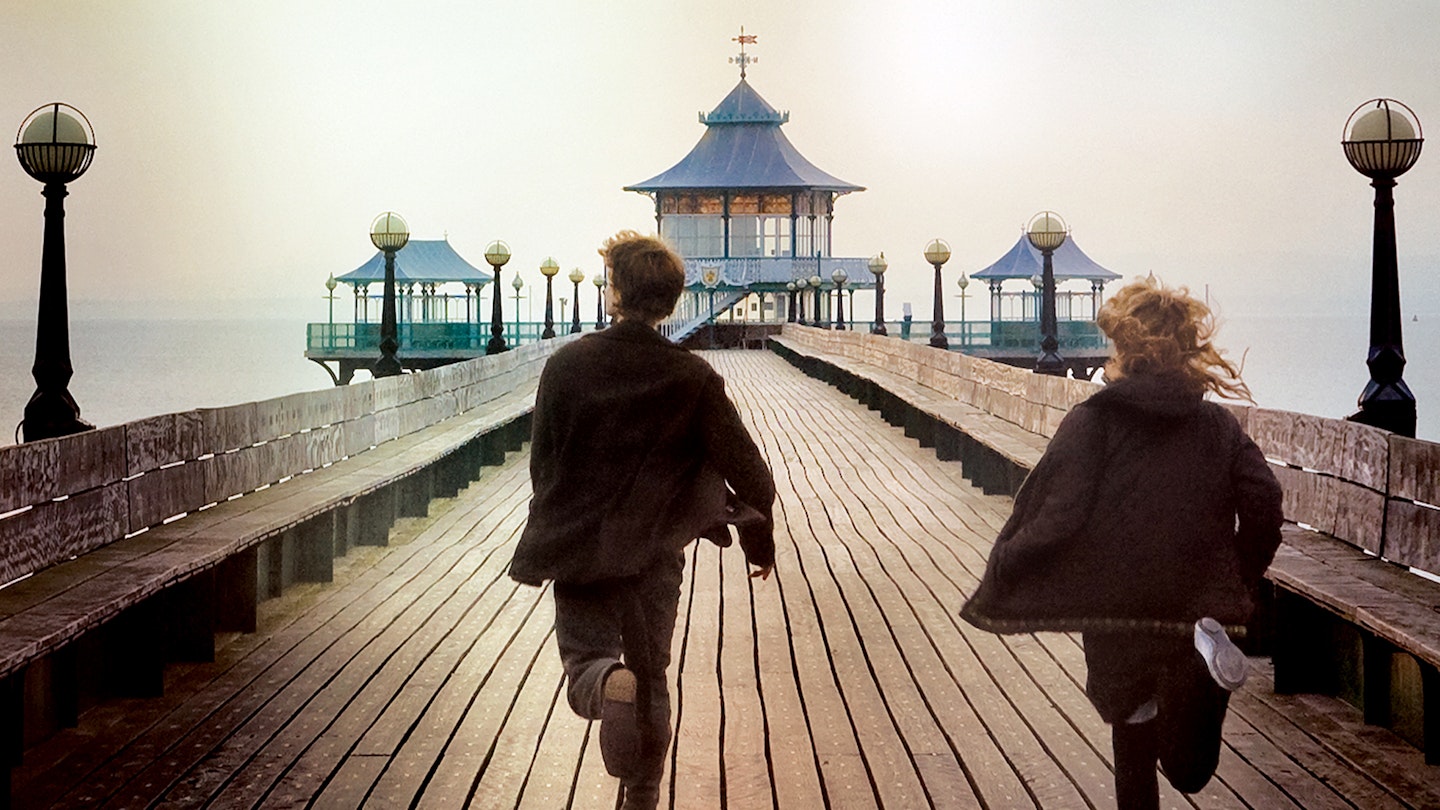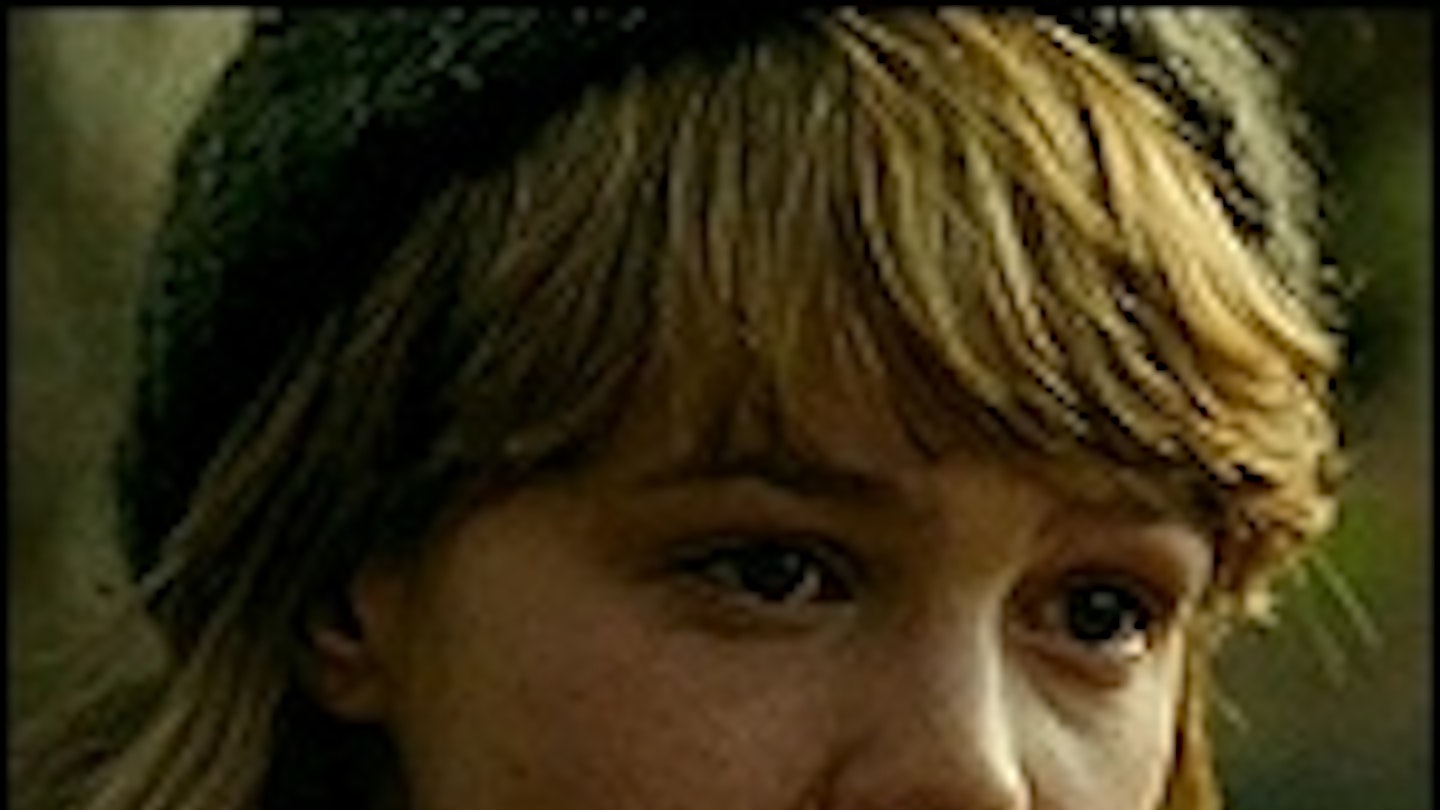Is it a spoiler to be told which genre — however broadly defined — a story resides? If you think it is, then it’s probably best you skip to the star rating. Otherwise…
The shortlisting of Kazuo Ishiguro’s 2005 novel Never Let Me Go for the Arthur C. Clarke Award provides a signpost (flashing, ice-blue neon, levitating mysteriously) that the book belongs to the sci-fi genre. Yet there’s nothing in the title, nor on the jacket, nor even in the back-page plot synopsis that suggests anything other than a coming-of-age romance, albeit one set in a darkly smudged version of mid-to-late 20th-century England. The narrative itself — delivered with truthful imperfection by one Kathy H. (Carey Mulligan) — offers no sense that anything is out of the ordinary (as indeed it isn’t, for the narrator), so its ‘true’ nature isn’t so much delivered in a shock twist as gradually, unintentionally revealed (by the character), like watching a disturbing Polaroid develop while held gingerly in your hands.
The same is true of this excellent film adaptation, scripted by Alex Garland (who, after 28 Days Later and Sunshine, is himself no stranger to sci-fi) and visualised by Mark Romanek, who has previously dealt with disturbing slow-developments in One Hour Photo. However, it is fair to describe their take on Never Let Me Go as ‘sci-fied up’ — which isn’t to say they’ve relocated Kathy H. to an orbital space-factory, or have her whizz over to Norfolk in a sky-skimming Spinner. Romanek keeps the look distinctly British and 20th century-mundane: cloud-shadowed beaches sloping out to brown-grey sea; triple-varnished, wood-floored assembly halls echoing with the squeaks of V-neck-jumpered schoolchildren; rain-dank teenagers slouching around hedge-rowed countryside in mud-slopped wellies. Period-wise, it’s effectively non-specific; on the surface this looks like a story which stretches from the 1950s to the ’90s, while only really spanning around 20 years.
Yet right at the opening Garland informs us of a major medical breakthrough occuring during the 1960s which has dramatically extended human life-expectancy. Up front we know this is not our world. And there are other little signifiers, not only in Ishiguro’s deceptively soft terminology (“carer”, “donor”, “completion”), but also in a neat addition from Garland which shows each of the Hailsham students wearing a wrist tag that they use to register their entry and exit to and from the building — a device they chillingly retain even after reaching adulthood.
It is spoiling nothing to say that Kathy and her friends Tommy (Andrew Garfield) and Ruth (Keira Knightley) are trapped. Yet it is to Ishiguro’s eternal credit that his exploration of how they deal with their entrapment does not precipitate some kind of searchlight-blinded action-adventure. This is hardly Logan’s Run. This is a character-driven drama, and Garland and Romanek faithfully keep it so. The idea of ‘escape’ doesn’t even occur to the protagonists; merely a desire to delay the inevitable. They are, like any of us, very much the product of their environment — more so, in fact — and just normal people at that (‘normal’, of course, being one of the most conveniently malleable of adjectives), so it’s not even relevant to bring up the broader moral ramifications of their situation, or for them to challenge its justness. There are deeper, more personal things at stake. Which is why Never Let Me Go is such a profoundly sad story.
Yes, what we essentially have here is a sci-fi weepie. And the fact that it works so bittersweetly is down not so much to Garland’s tender treatment of the concept as it is the casting of the main characters and the performances of Mulligan, Knightley and Garfield.
Off the page there was always the danger that Kathy H. could prove frosty and impassive. But Mulligan finds the warmth in Ishiguro’s creation and makes sure she glows on the screen. Somehow she conveys a sense of worldweariness from a person who has seen hardly anything of the world; a feeling of fierce passion from someone who has never known how to show it. Knightley, meanwhile, handles the lesser, and less sympathetic, role of Ruth well, with a sharpness that in other hands might be mistaken for shrewishness, and a selfishness that feels less like sheer meanness than an understandable defence mechanism. And between them — for this is a love triangle — is Garfield, perfectly capturing Tommy’s appealing awkwardness and tentative curiosity, a boy (and man) desperately trying to find the meaning in his inner life and somehow channel the power he believes there might be in emotional expression.
The outcome of their romantic entanglement, and their existential quandry, is heart-rending and distressing. And possibly, for some, frustrating. But it does leave you throbbing with all those big, troubling questions about what it really means to live.




